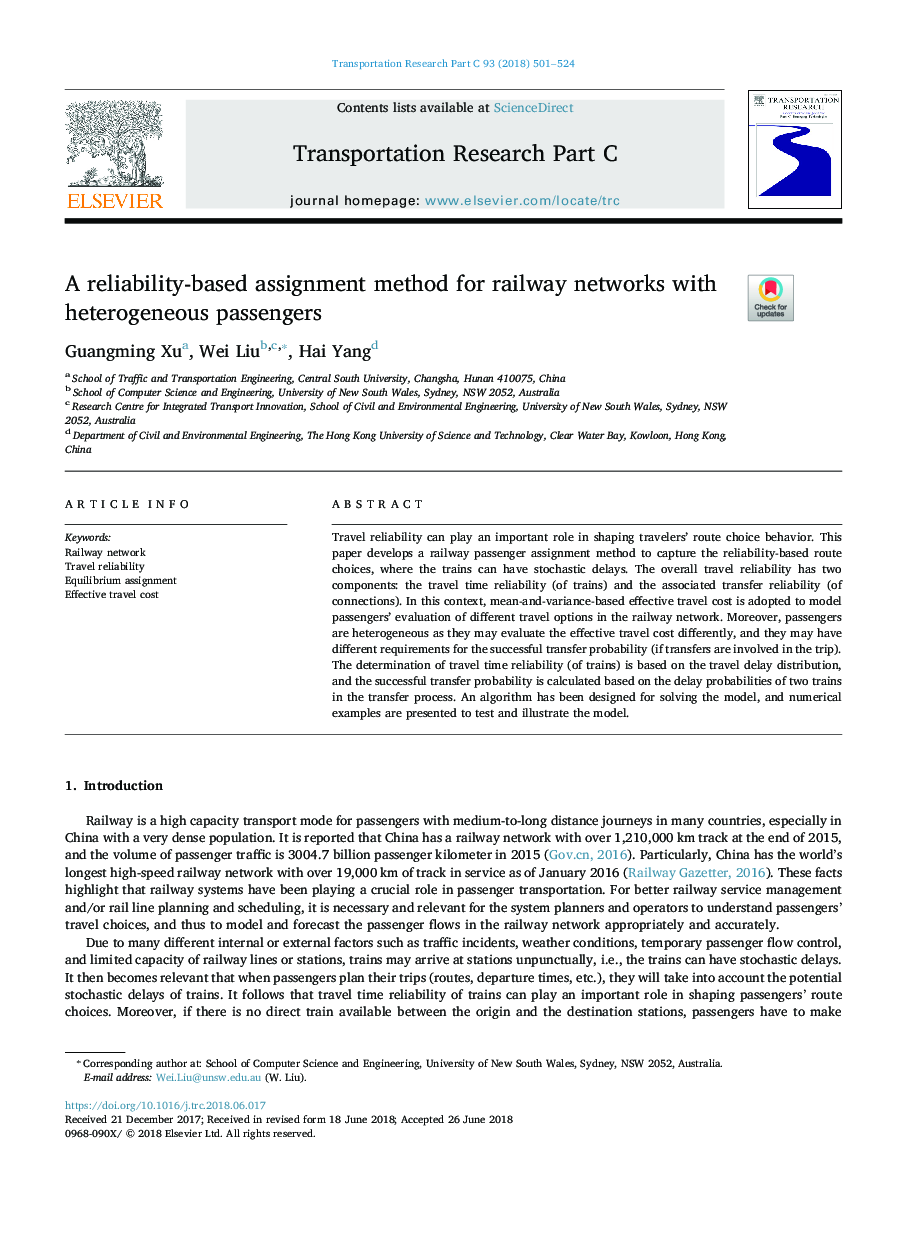| Article ID | Journal | Published Year | Pages | File Type |
|---|---|---|---|---|
| 6935794 | Transportation Research Part C: Emerging Technologies | 2018 | 24 Pages |
Abstract
Travel reliability can play an important role in shaping travelers' route choice behavior. This paper develops a railway passenger assignment method to capture the reliability-based route choices, where the trains can have stochastic delays. The overall travel reliability has two components: the travel time reliability (of trains) and the associated transfer reliability (of connections). In this context, mean-and-variance-based effective travel cost is adopted to model passengers' evaluation of different travel options in the railway network. Moreover, passengers are heterogeneous as they may evaluate the effective travel cost differently, and they may have different requirements for the successful transfer probability (if transfers are involved in the trip). The determination of travel time reliability (of trains) is based on the travel delay distribution, and the successful transfer probability is calculated based on the delay probabilities of two trains in the transfer process. An algorithm has been designed for solving the model, and numerical examples are presented to test and illustrate the model.
Related Topics
Physical Sciences and Engineering
Computer Science
Computer Science Applications
Authors
Guangming Xu, Wei Liu, Hai Yang,
